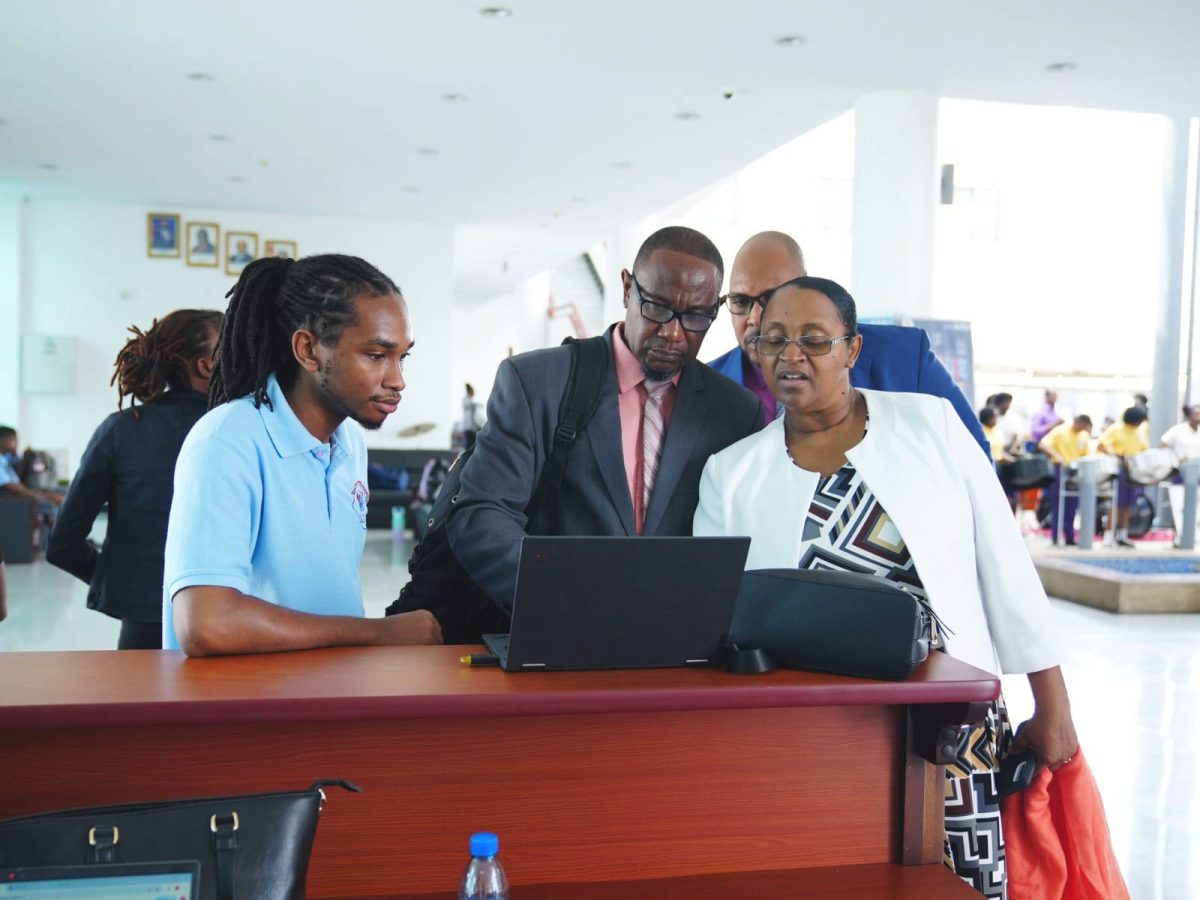Yesterday, the results for the National Grade Six Assessment (NGSA) 2024 were released, showing a significant increase in passes over 50% in Social Studies and a slight increase in English and Math. While Science showed a slight decrease, the overall performance across the four subjects was deemed satisfactory.
According to Nicole Manning, Director of Operations at CXC, the council implemented a multi-layered approach to standardization and marking to ensure that scores were fair and accurate.
“We have a multi-layered approach to what we call standardization and marking so that means everybody involved has to be on the same page. And that’s very important because the score that is awarded to one candidate must be the same score if another person was marking should have been awarded to that candidate… no candidate is disadvantaged,” she emphasized.
The results show that 62.88% of students receiv-ed over 50% in Social Studies, an increase from 58.57% in 2023. Addi-tionally, the number of students receiving full marks in Social Studies jumped from 17 to 52, with a reduction in the number of students receiving zero marks.
English also saw an overall increase, with 66.79% of students earning 50% or above, the highest rate in five years. Last year, the percentage was 64.47%. The number of students receiving full marks increased from 61 to 72, while the number of students receiving zero marks decreased.
Mathematics showed a slight increase, with 40.36% of students earning 50% or above, a slight improvement from last year’s 39.87% and a significant improvement over the last five years. While the number of students receiving full marks decreased, the number of students receiving zero marks also decreased.
Science, however, saw a slight decline, with a 1% decrease in the percentage of students earning 50% or above. The mean score for males remained steady at 29.56.
The examination results also showed a significant gap between top performers and those who struggled. The top quartile, comprising students who scored above 120, consisted of 3809 females and 2089 males. The bottom quartile, comprising students who scored below 60, consisted of 2828 students.
Before revealing the results of the top performers, Education Minister Priya Manickchand announced that this year’s NGSA will see the introduction of new schools, including the St George’s School of Sciences in Georgetown. The school, she said, will cater specifically to students who have not secured a place in a national school or List A school and have achieved specific grades in English, Math, and Science.
“In Georgetown, there will be the St George’s School of Sciences. For students to be eligible for this school, he or she must have been living in Georgetown and not earned a place in a national school or List A school and gained 60% in English, 60% in Math, 65% in Science or at least those grades. This school will be strictly preparing students for careers in Medical Sciences. So, we’re very happy to make that one of our first specialized type of schools for students who didn’t get the national tops or the List A’s but who we believe have great potential, and we’re going to show that in five years time,” Manickchand said.
While acknowledging that there is always room for improvement, Manning expressed satisfaction with the overall performance and vowed that CXC will continue working with the Ministry of Education to address any areas of concern.
According to the Minis-try of Education, 15,285 candidates wrote the assessment. The Ministry said it has continued its collaboration with the Caribbean Examinations Council (CXC) to improve the quality of all national primary grade assessments. Teachers, subject specialists and test development officers developed the test items with the technical guidance of the CXC, addressing key areas such as item construction, weighting of items, sampling and other psychometric elements. Candidates were tested in four subjects: Mathematics, English, Science and Social Studies. The examination in each subject area consisted of two papers. Paper One consisted of forty multiple choice items while Paper Two consisted of essay type or open ended items.
Areas tested for each subject were:
Mathematics – Knowledge, Algorithmic Thinking, Reasoning
Science – Knowledge, Comprehension, Application
Social Studies – Knowledge, Conceptual Understanding, Use of
Knowledge
English Language – Reading, Comprehension and Vocabulary:
Structure and Mechanics; Content, Focus,
Vocabulary; Language and Organization
The highest possible standardized scores obtainable were:
Mathematics 132.77
English 122.63
Social Studies 122.06
Science 126.78
The highest possible total score obtainable was 504.24
Cut-off scores for Sixth Form Schools
SECONDARY SCHOOL NAME CUT-OFF
417 QUEEN’S COLLEGE (G/TOWN) 495.45
403 THE BISHOPS’ HIGH SCHOOL (G/TOWN) 492.62
423 ST. STANISLAUS COLLEGE (G/TOWN) 490.49
422 ST. ROSE’S HIGH (G/TOWN) 487.44
421 ST. JOSEPH HIGH (G/TOWN) 484.5
477 PRESIDENT’S COLLEGE 480.12






